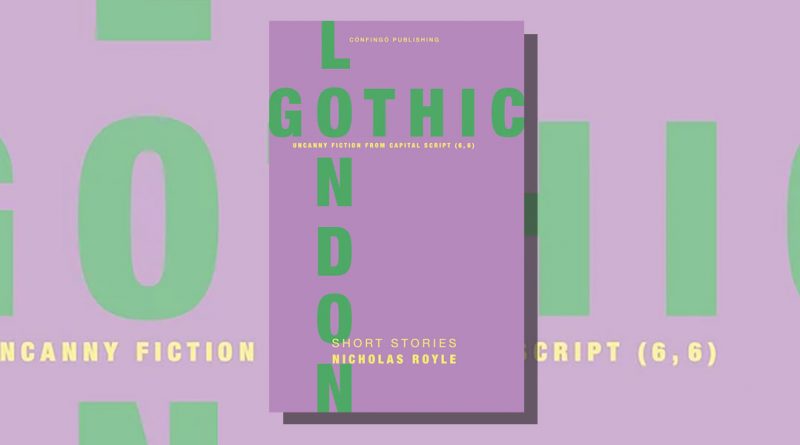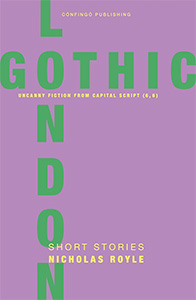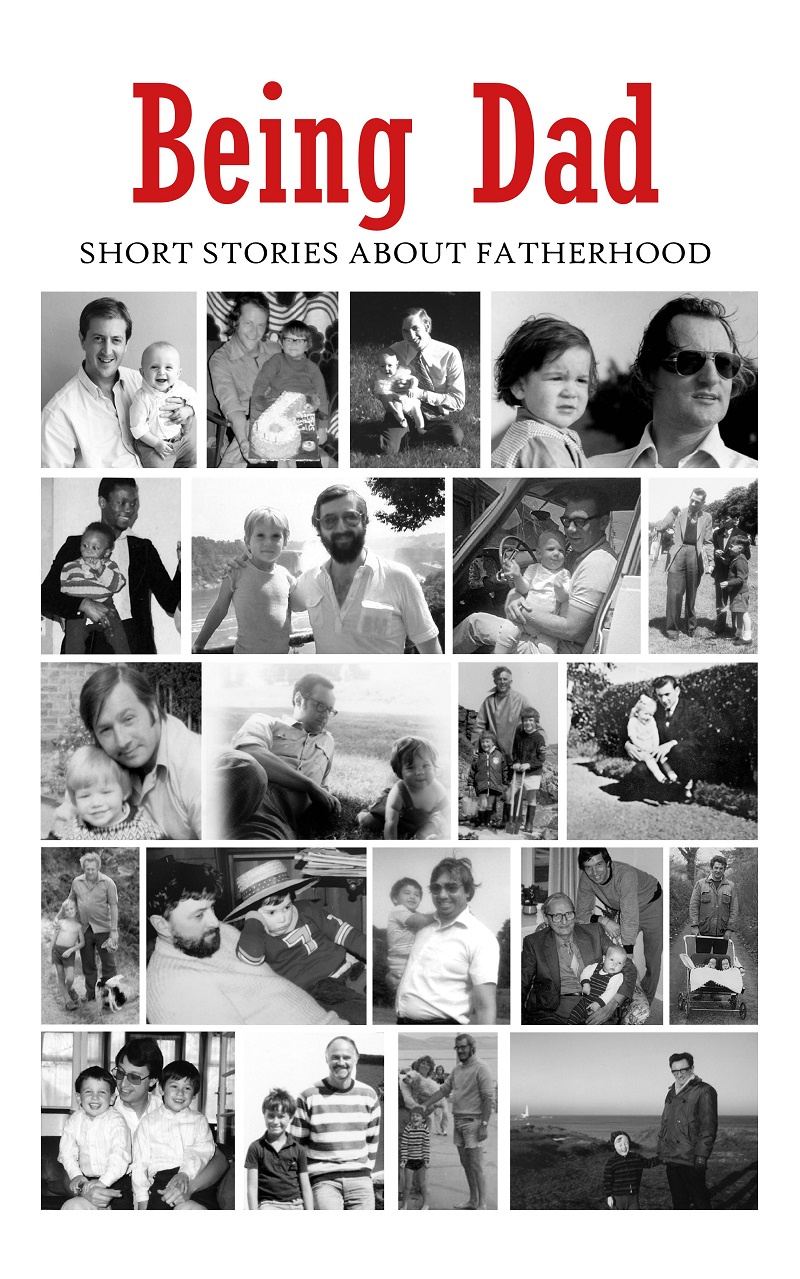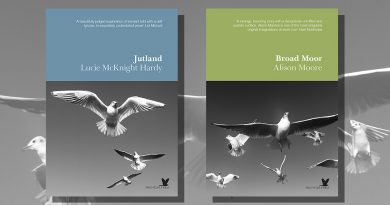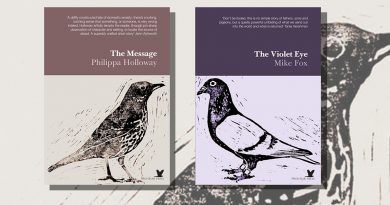London Gothic by Nicholas Royle
–Reviewed by Neil Campbell–
You know what we’re in for when the creepy second person narration of ‘Welcome’ refers you to a blood stain on the first page. It’s something you might see in a film, and the influence of film is paramount in these London Gothic (Cōnfingō Publishing) stories and Royle’s fiction in general.
‘Inside/Out’ is an engagingly tense story, with film making motifs, cinematic techniques and references to Hitchcock, while ‘Artefact’ is directed as much as narrated. Again we get the film references but this time the story is about a man who finds footage of his children at Xmas and gives it to his ex-wife. This story about perspective switches narration three times. Sometimes characters are like actor-directors, auters of their own lives, or just ghosts in the machine. ‘Empty Boxes’ is a story about movie posters and the theme of life as film, as well as a love song to dead cinemas.
In ‘L ndon’ a hammer lying on the floor, and a knife block, as well as some Flash liquid for good measure become portents of impending horror. You could miss the murder if you skipped one short sentence. The narrator is apparently amiable. In ‘Standard Gauge’ the accidental tearing of a photograph foregrounds a decapitation and double amputation by a psychopath who sees trains on ghost lines. In contrast, ‘L0nd0n’ is bravely melancholic.
This is also a book about architecture, with references to art deco, stuccoed terraces, Victorian terraces and a fixation with doors. In ‘Guys’, a contrasting and deliberately short, short story, the flat of serial killer Dennis Nilson is examined.
There’s a lot of walking and that’s as good a way to structure a story as any. ‘Constraints’ is a story that specifically articulates that the “text was generated by a walk”. I didn’t think I would really care for this one.
Like a lot of what might be termed ‘experimental’ fiction you can appreciate the idea while still wishing for the deeper satisfactions of narrative. But despite myself this was a highlight, a story about actual signs rather than perceived ones.
‘Train, Night’ seems an almost perfect story. Featuring a disgruntled ex, the narrator’s barbed snipes read like the complaints made by the unchosen on Dinner Date before they start on their microwaved meals. Royle achieves another convincing female narrator in a story that embraces the influence of film in the dialogue as well as structure. When the narrator says “what he gains in image size he’ll lose in definition” we could be talking about any number of things, perhaps the difference in novels and short stories, and this heightened definition is exemplified by a grotesquely orchestrated ending.
I especially enjoyed the apparently still-to-be-edited ‘The Old Bailey’ where you realize that the author will even disrupt literary conventions in his pursuit of removing the reader from any kind of comfort zone, the editorial notes becoming increasingly abusive in comically sarcastic fashion. Of course, unease also lends itself to laughter.
This is a writer interested in story, not beautiful sentences, and the sentences function in service of the story. In guitarist terms think Robbie Robertson rather than Eddie Van Halen. And in Royle’s case there’s always subtle phrasing to appreciate like ‘be-spattered bathroom.’
It’s tempting to think these stories articulate the author’s own obsessions and that’s fine with me. In the writers I love, themes recur with a pleasing frequency, not as repetitions but as ever-deepening engagements.
This is the first in a proposed series of books, with a Manchester Gothic and Paris Gothic in the works. Of course, Manchester is by far the greatest of these three cities, and, unlike the present government, we can be sure Royle will do it justice.
Find out more about London Gothic on the Cōnfingō Publishing website.

Reviewed by Neil Campbell — Neil Campbell’s third novel Lanyards (Salt Publishing, 2019) is out now. From Manchester, England, he has appeared three times in the annual anthology of Best British Short Stories (2012/2015/2016). He has published three novels, two collections of flash fiction, two collections of short stories, two poetry chapbooks and a poetry collection, as well as appearing in numerous magazines and anthologies. He is currently working on new books and looking for an agent.
Twitter: @neilcambers | Website: ncampbellwriter.wixsite.com

